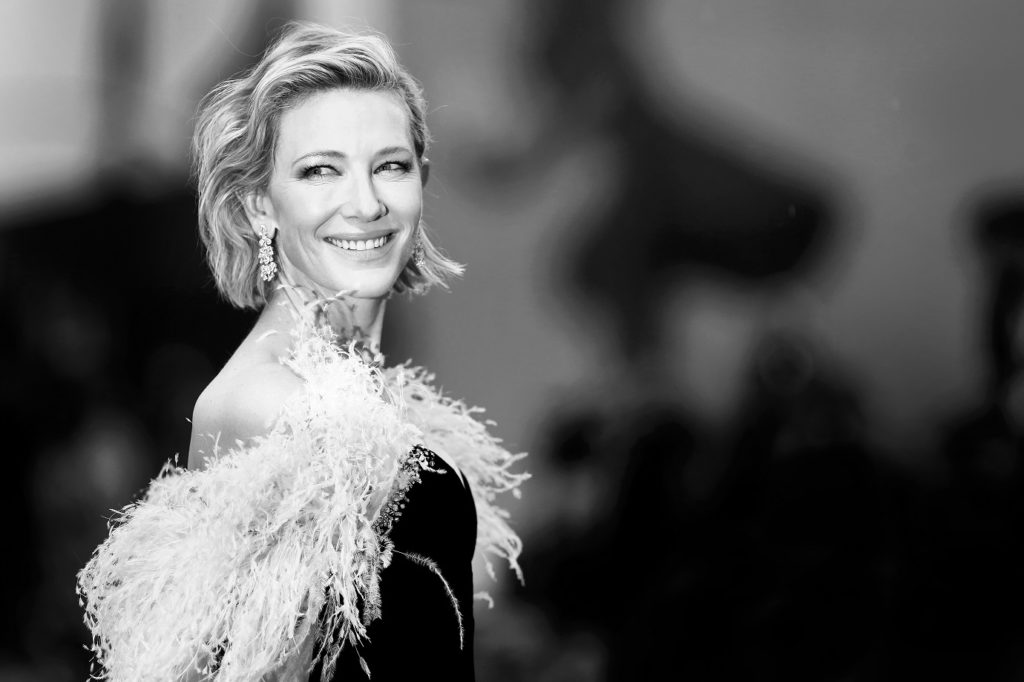Women in the arts often need to fight extremely hard to get paid “a third” of what their male counterparts are paid, even when they’re multi-award winning actresses with almost three decades of experience, according to Australian actress Cate Blanchett.
Speaking with former Prime Minister, Julia Gillard, in A Podcast of One’s Own (yes, it’s a spin on words of author Virginia Wolfe’s A Room of One’s Own), Blanchett says while she is conscious of her privilege as a “white, middle class, healthy” woman, fighting for equal pay as a “white, middle class, healthy male” – is still the norm in the arts.
“I’m incredibly fortunate. I am white, I’m middle class and I’m healthy. But you know that your white, middle class, healthy counterpart who is putting in as many hours as you are and perhaps doesn’t have children – so you’re doing two jobs – at that point you do want to get your two Academy Awards out go “I thought these were meant to stand for something?” Blanchett says. “They certainly do for my male counterparts who have two of them.”
Gillard said that US university study (Huddersfield University, Wisconsin University and Lancaster University) found that the gender wage gap between male and female actors was basically the same in 1980 as it was in 2015…” there’s an unexplained gender gap of about $1.1 million, or around 25 per cent”.
Blanchett says that “back in 2008, and to this day, you still have to push to get paid a third of your male co-star – it’s a fact”. While Blanchett doesn’t refer to any particular male co-star or film, 2008 was the year that she made the Hollywood hit, The Curious Case of Benjamin Button with Brad Pitt.
Blanchett, a self-described feminist, has challenged herself in her latest role, playing conservative woman Phyllis Schlafly, in the tele series, Mrs America. The drama tells the true story of the movement to ratify the Equal Rights Amendment and the backlash of Schlafy to stop it. It was a particularly interesting character, Blanchett says, as Schlafly, herself, was a contradiction. She travelled extensively, raised six children as a single mother, and worked extensively as a lawyer – yet she actively spoke out against moves to give women equal rights to men.
When asked what is the worst example of misogyny she has experienced, Blanchett tells Gillard: “I think I am living through it right now and it’s not directed at me”. Referring to US President Donald Trump’s leadership Blanchett explains: “That’s part of the reason why I wanted to work on a piece [Mrs America] that was about the drive to ratify the equal rights amendment. Because I wanted to know why the majority of women voted for the man who is currently in the Oval Office.”
The arts will bring people together again, post COVID-19
The arts have been severely impacted by the fallout of COVID0-19, especially in Australia where the industry is very small, compared to countries like China, India and the United States, Blanchett says.
But she is confident that the sector will return as strong as every when restrictions are eased. Entertainment through the arts, such as going to the theatre or ballet, is a crucial part of “a human drive to gather together in public and experience story”.
“In the short-term it is very challenging for us because obviously, production has stopped, people can’t go into the theatre and the arts in Australia in particular are in a very precarious position,” Blanchett says. “But I do think people are going to want to stop seeing one another in tiny little boxes in Zoom meetings and they’re going to want to breathe the same air.”
Blanchett has taken some time off to dedicate to her four children, especially her son who has recently completed secondary school. He’s now 18 and “doesn’t want much to do with me”, and Blanchett has instead, during lockdown, found herself home schooling her youngest son, aged five.
“I have huge respect for teachers!” she says.
Listen to the podcast here

